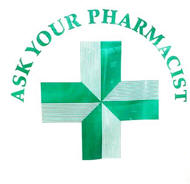Catholic Medical Quarterly Volume 67(2) May 2017
Editorial:
Conscience and the pharmacists
Dr Adrian Treloar
 In
March this year, the General Pharmaceutical Council closed its
consultation [1] on religion, personal values and beliefs in pharmacy
practice. The conclusion from that consultation is expected to be put in
place in May this year.
In
March this year, the General Pharmaceutical Council closed its
consultation [1] on religion, personal values and beliefs in pharmacy
practice. The conclusion from that consultation is expected to be put in
place in May this year.
Along with many other organisations, the CMA expressed its deep concern at the proposals. The core proposed change is that the pharmacist must
“Recognise their own values and beliefs but do not impose them on other people[unchanged from current wording]” and
"Take responsibility for ensuring that person-centred care is not
compromised
because of personal values and beliefs.”
The definition the GPhC uses of person centred care states that “Person-centred care is delivered when pharmacy professionals understand what is important to the individual and then adapt the care to meet their needs – making the care of the person their first priority”
That set of words will, in essence, mean that the determinant of what is right is the patient’s own beliefs and attitudes. Person centred care (as defined by the GPhC) cannot be delivered if the pharmacist does not do what the patient wants.
This is a grave risk and gravely wrong. It may force pharmacists to leave their employment or to compromise their values whenever those values conflict with those of the patient. Conscience is disallowed. The effects would not only be confined to the morning after pill. That wording would require cooperation with the dispensing of medications for physician assisted killing, and even for execution (where it is legal). It would also limit the ability of the pharmacist to refuse to sell or dispense other products which he or she thinks may be inappropriate or harmful. Disallowing conscience will have grave effects indeed.
 The
Church has a long and glorious history of professional people, clerics and
lay people who have laid down their lives and their livelihoods for what
they believe to be right. The annals of the Martyr Saints give true
testimony to the importance of conscience. St Thomas More, St John Fisher,
sit alongside St Henry Morse (a nurse) and many more. In penal times the
Church was prepared to lose entire nations to the faith if keeping them
meant that the truth had to be compromised.
The
Church has a long and glorious history of professional people, clerics and
lay people who have laid down their lives and their livelihoods for what
they believe to be right. The annals of the Martyr Saints give true
testimony to the importance of conscience. St Thomas More, St John Fisher,
sit alongside St Henry Morse (a nurse) and many more. In penal times the
Church was prepared to lose entire nations to the faith if keeping them
meant that the truth had to be compromised.
We must therefore pray for our pharmacists that they will be strong and resolute in doing what is right. Those challenges do not only relate to the morning after pill but that treatment will, in the end, be the acid test of the challenges they face. As well as that we must be sure to continue to advocate for and to support our pharmacists. Good Christian pharmacists must be allowed to work in pharmacy. If they are not, then patients will be deprived of the opportunities that they bring.
We will publish the CMA submission on our website [2] and in future CMQs. We will also discuss this further to our AGM in Birmingham in April. But the pharmacists should be an example to us all. We must, in our professional work hold to what is right. Hippocrates specifically established that. Conscience is an integral and indispensable part of our vocations. Attempts to remove freedom of conscience from the health care professions are very grave developments which we must all resist vigorously.
References
- General Pharmaceutical Council. Consultation on religion, personal
values and beliefs. December 2016.
www.pharmacyregulation.org/sites/default/files/
consultation_on_religion_personal_values_and_beliefs_december_2016-ii.pdf - You can read the submission from the CMA on our website http://cmq.org.uk/Submissions/GPC-on-Conscience-March-2017.pdf
